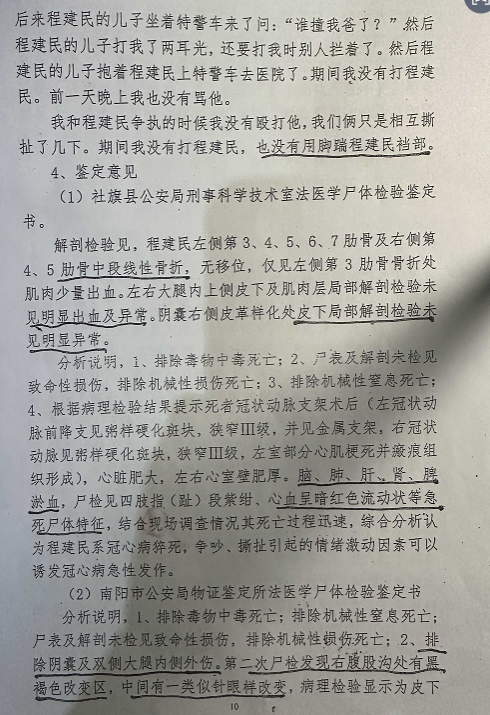1 卞显红, 王国聘, 黄震方, 等. 2002.评生态环境伦理学[J]. 生态经济, (2): 37-45.
1 [Bian X H, Wang G P, Huang Z F, et al.2002. On the ecology-environment ethics in the sustainable development tourism[J]. Ecological Economy, (2): 38-45.]
2 程绍文, 张捷, 徐菲菲. 2010. 自然旅游地居民自然保护态度的影响因素: 中国九寨沟和英国新森林国家公园的比较[J]. 生态学报, 30(24): 6487-6494./s?wd=paperuri%3A%28b0cd10e590c185f24340ede7dd29999f%29&filter=sc_long_sign&sc_ks_para=q%3D%E8%87%AA%E7%84%B6%E6%97%85%E6%B8%B8%E5%9C%B0%E5%B1%85%E6%B0%91%E8%87%AA%E7%84%B6%E4%BF%9D%E6%8A%A4%E6%80%81%E5%BA%A6%E7%9A%84%E5%BD%B1%E5%93%8D%E5%9B%A0%E7%B4%A0%E2%80%94%E2%80%94%E4%B8%AD%E5%9B%BD%E4%B9%9D%E5%AF%A8%E6%B2%9F%E5%92%8C%E8%8B%B1%E5%9B%BD%E6%96%B0%E6%A3%AE%E6%9E%97%E5%9B%BD%E5%AE%B6%E5%85%AC%E5%9B%AD%E7%9A%84%E6%AF%94%E8%BE%83&sc_us=1156188399469337550&tn=SE_baiduxueshu_c1gjeupa&ie=utf-8
2 [Cheng S W, Zhang J, Xu F F.2010. Factors influencing local residents’ attitude towards nature conservation in natural tourism destination: A comparative study on China’s Jiuzhaigou National Park and UK’s New Forest National Park[J]. Acta Ecologica Sinica, 30(24): 6487-6494.]
3 崔凤, 唐国建. 2010. 环境社会学: 关于环境行为的社会学阐释[J]. 社会科学辑刊, (3): 45-50./s?wd=paperuri%3A%28b14d5d33bd0fbc9b68825143d80efa12%29&filter=sc_long_sign&sc_ks_para=q%3D%E7%8E%AF%E5%A2%83%E7%A4%BE%E4%BC%9A%E5%AD%A6%3A%E5%85%B3%E4%BA%8E%E7%8E%AF%E5%A2%83%E8%A1%8C%E4%B8%BA%E7%9A%84%E7%A4%BE%E4%BC%9A%E5%AD%A6%E9%98%90%E9%87%8A&sc_us=14509875324768448067&tn=SE_baiduxueshu_c1gjeupa&ie=utf-8
3 [Cui F, Tang G J.2010. Huanjing shehuixue: Guanyu huanjing xingwei de shehuixue chanshi[J]. Social Science Journal, (3): 45-50.]
4
范钧, 邱宏亮, 吴雪飞. 2014. 旅游地意象、地方依恋与旅游者环境责任行为: 以浙江省旅游度假区为例[J]. 旅游学刊, 29(1): 55-66.
doi: 10.3969/j.issn.1002-5006.2014.01.006
4 [Fan J, Qiu H L, Wu X F.2014. Tourist destination image, place attachment and tourists’ environmentally responsible behavior: A case of Zhejiang Tourist Resorts[J]. Tourism Tribune, 29(1): 55-66.]
5
高军波. 2006. 区域旅游可持续发展中的环境伦理问题[J]. 科技与管理, 37(3): 11-14
doi: 10.3969/j.issn.1008-7133.2006.03.004
5 [Gao J B.2006. Issues on environmental ethics in regional sustainable development[J]. Science-Technology and Management, 37(3): 11-14.]
6
郭来喜. 1997. 中国生态旅游: 可持续旅游的基石[J]. 地理科学进展, 16(4): 1-10./s?wd=paperuri%3A%283d7545d4fbac7f9ae1d0266e3e528486%29&filter=sc_long_sign&sc_ks_para=q%3D%E4%B8%AD%E5%9B%BD%E7%94%9F%E6%80%81%E6%97%85%E6%B8%B8%E2%80%94%E2%80%94%E5%8F%AF%E6%8C%81%E7%BB%AD%E6%97%85%E6%B8%B8%E7%9A%84%E5%9F%BA%E7%9F%B3&sc_us=5795227643548007452&tn=SE_baiduxueshu_c1gjeupa&ie=utf-8
doi: 10.11820/dlkxjz.1997.04.001
6 [Guo L X.1997. Chinese ecotourism: The foundation of sustainable tourism[J]. Progress in Geography, 16(4): 1-10.]
7 胡细涓. 2006. 环境伦理学与旅游可持续发展[J]. 国土与自然资源研究, (2): 67-68.
7 [Hu X J.2006. The environmental ethics and sustainable development tourism[J]. Territory & Natural Resources Study, (2): 67-68.]
8 黄小乐. 2009. 环保行为模式的研究现状及走向[J]. 社会心理科学, 24(6): 48-54.
8 [Huang X L.2009. The actuality and trend of research on environmental behavior pattern[J]. Social Psychology Science, 24(6): 48-54.]
9 黄震方. 2001. 关于旅游业可持续发展的环境伦理学思考[J]. 旅游学刊, 16(2): 68-71.
9 [Huang Z F.2001. Thoughts about the environment ethics in the sustainable development of tourism[J]. Tourism Tribune, 16(2): 68-71.]
10
黄震方, 黄睿. 2015. 基于人地关系的旅游地理学理论透视与学术创新[J]. 地理研究, 34(1): 15-26.
doi: 10.11821/dlyj201501002
10 [Huang Z F, Huang R.2015. The theoretical perspective and academic innovation of tourism geography based on human-environment interactions[J]. Geographical Research, 34(1): 15-26.]
11 霍尔姆斯·罗尔斯顿. 2000. 环境伦理学[M]. 北京: 中国社会科学出版社: 464.
11 [Rolston H.2000. Environmental ethics[M]. Beijing, China: China Social Sciences Press: 464.]
12 罗艳菊, 黄宇, 毕华, 等. 2012. 基于环境态度的城市居民环境友好行为意向及认知差异: 以海口市为例[J]. 人文地理, 27(5): 69-75./s?wd=paperuri%3A%286a114e6fa85f7f0bf863084d33dd4e25%29&filter=sc_long_sign&sc_ks_para=q%3D%E5%9F%BA%E4%BA%8E%E7%8E%AF%E5%A2%83%E6%80%81%E5%BA%A6%E7%9A%84%E5%9F%8E%E5%B8%82%E5%B1%85%E6%B0%91%E7%8E%AF%E5%A2%83%E5%8F%8B%E5%A5%BD%E8%A1%8C%E4%B8%BA%E6%84%8F%E5%90%91%E5%8F%8A%E8%AE%A4%E7%9F%A5%E5%B7%AE%E5%BC%82%E2%80%94%E2%80%94%E4%BB%A5%E6%B5%B7%E5%8F%A3%E5%B8%82%E4%B8%BA%E4%BE%8B&sc_us=733540969188807784&tn=SE_baiduxueshu_c1gjeupa&ie=utf-8
12 [Luo Y J, Huang Y, Bi H, et al.2012. Difference in urban residents’ pro-environmental behavior intention and understanding based on their environmental attitude: A case study of Haikou[J]. Human Geography, 27(5): 69-75.]
13 吕君, 陈田, 刘丽梅. 2009. 旅游者环境意识的调查与分析[J]. 地理研究, 28(1): 259-270.
13 [Lv J, Chen T, Liu L M.2009. An investigation and analysis of tourists’ environmental consciousness[J]. Geographical Research, 28(1): 259-270.]
14 马耀峰, 李创新, 张佑印, 等. 2008. 不同文化群体来华游客认知评价的差异性研究: 以六大旅游热点城市为例[J]. 地域研究与开发, 27(2): 76-80./s?wd=paperuri%3A%28851fae5dc2f411eb2c92b02b4a5bcdd3%29&filter=sc_long_sign&sc_ks_para=q%3D%E4%B8%8D%E5%90%8C%E6%96%87%E5%8C%96%E7%BE%A4%E4%BD%93%E6%9D%A5%E5%8D%8E%E6%B8%B8%E5%AE%A2%E8%AE%A4%E7%9F%A5%E8%AF%84%E4%BB%B7%E7%9A%84%E5%B7%AE%E5%BC%82%E6%80%A7%E7%A0%94%E7%A9%B6%E2%80%94%E2%80%94%E4%BB%A5%E5%85%AD%E5%A4%A7%E6%97%85%E6%B8%B8%E7%83%AD%E7%82%B9%E5%9F%8E%E5%B8%82%E4%B8%BA%E4%BE%8B&sc_us=16583268672398045648&tn=SE_baiduxueshu_c1gjeupa&ie=utf-8
14 [Ma Y F, Li C X, Zhang Y Y, et al.2008. A research on differences among different cultural foreign tourists in China based on their perceptive and cognitive behaviors: Take the six hottest tourism cities for example[J]. Areal Research and Development, 27(2): 76-80.]
15
潘玉君, 明庆忠, 李宏. 2002. 可持续发展的环境伦理[J]. 云南师范大学学报, 34(5): 20-24.
doi: 10.3969/j.issn.1000-5110.2002.05.006
15 [Pan Y J, Ming Q Z, Li H.2002. The environmental ethics of sustainable development[J]. Journal of Yunnan Normal University, 34(5): 20-24.]
16 祁秋寅, 张捷, 卢韶婧, 等. 2009. 自然遗产地游客环境态度与环境行为倾向研究: 以九寨沟为例[J]. 旅游学刊, 24(11): 4l-46./s?wd=paperuri%3A%281fc16d729735f94cd79ab39fbd36ad0b%29&filter=sc_long_sign&sc_ks_para=q%3D%E8%87%AA%E7%84%B6%E9%81%97%E4%BA%A7%E5%9C%B0%E6%B8%B8%E5%AE%A2%E7%8E%AF%E5%A2%83%E6%80%81%E5%BA%A6%E4%B8%8E%E7%8E%AF%E5%A2%83%E8%A1%8C%E4%B8%BA%E5%80%BE%E5%90%91%E7%A0%94%E7%A9%B6%E2%80%94%E2%80%94%E4%BB%A5%E4%B9%9D%E5%AF%A8%E6%B2%9F%E4%B8%BA%E4%BE%8B&sc_us=17047745739486122919&tn=SE_baiduxueshu_c1gjeupa&ie=utf-8
16 [Qi Q Y, Zhang J, Lu S J, et al.2009. On environmental attitudes and behavior intention of tourists in natural heritage site: A case study of Jiuzhaigou[J]. Tourism Tribune, 24(11): 4l-46.]
17
邵立娟, 肖贵蓉. 2013. 基于环境伦理的旅游者环境行为差异分析[J]. 中国发展, 13(5): 7-11.
doi: 10.3969/j.issn.1671-2404.2013.05.002
17 [Shao L J, Xiao G R.2013. The analysis on the differences of visitors’ environmental behaviors on the basis of environmental ethics[J]. China Development, 13(5): 7-11.]
18 沈立军. 2008. 大学生环境价值观、环境态度和环境行为的特点及关系研究[D]. 太原: 山西大学.
18 [Shen L J.2008. Character and relationship research on undergraduates environmental values, attitudes and behaviors[D]. Taiyuan, China: Shanxi University.]
19 孙岩, 宋金波, 宋丹荣. 2012. 城市居民环境行为影响因素的实证研究[J]. 管理学报, 9(1): 144-150.
19 [Sun Y, Song J B, Song D R.2012. An empirical study on influencing factors of residents environmental behavior[J]. Chinese Journal of Management, 9(1): 144-150.]
20 王国猛, 黎建新, 廖水香, 等. 2010. 环境价值观与消费者绿色购买行为: 环境态度的中介研究[J]. 大连理工大学学报: 社会科学, 31(4): 37-42.
20 [Wang G M, Li J X, Niao S X, et al.2010 Study of the relationship between environmental values and green purchasing behavior: The mediating effect of environmental attitude[J]. Journal of Dalian University of Technology: Social Sciences, 31(4): 37-42.]
21 王建明, 郑冉冉. 2011. 心理意识因素对消费者生态文明行为的影响机理[J]. 管理学报, 8(7): 1027-1035.
21 [Wang J M, Zheng R R.2011. The mechanism of psychological characteristics affecting consumers’ ecologically conscious behavior[J]. Chinese Journal of Management, 8(7): 1027-1035.]
22
吴桂英. 2014. 国内环境行为研究综述[J]. 经济研究导刊, (14): 7-9.
doi: 10.3969/j.issn.1673-291X.2014.14.004
22 [Wu G Y.2014. Guonei huanjing xingwei yanjiu zongshu[J]. Economic Research Guide, (14): 7-9.]
23 吴绍洪, 戴尔阜, 郑度, 等. 2007. 区域可持续发展中的环境伦理案例分析: 不同社会群体责任[J]. 地理研究, 26(6): 1109-1116.
23 [Wu S H, Dai E F, Zheng D, et al.2007. Case study on environmental ethics in sustainable regional development: Responsibilities for different communities[J]. Geographical Research, 26(6): 1109-1116.]
24
武春友, 孙岩. 2006. 环境态度与环境行为及其关系研究的进展[J]. 预测, 25(4): 61-65.
doi: 10.3969/j.issn.1003-5192.2006.04.012
24 [Wu C Y, Sun Y.2006. Review on studies of environmental attitudes and behavior and the relationship between them[J]. Forecasting, 25(4): 61-65.]
25 熊若蔚. 1996. 区域环境行为及其机制研究的立论思路[J]. 人文地理, 11(1): 40-43.
25 [Xiong R W.1996. Thought of research about behaviour of regional environment and its mechanism[J]. Human Geography, 11(1): 40-43.]
26 徐寅, 耿言虎. 2010. 城郊村落水环境恶化的社会学阐释: 下石村个案研究[J]. 河海大学学报: 哲学社会科学版, 12(2): 41-44./s?wd=paperuri%3A%28cdb155037d268de32df3e413207153dc%29&filter=sc_long_sign&sc_ks_para=q%3D%E5%9F%8E%E9%83%8A%E6%9D%91%E8%90%BD%E6%B0%B4%E7%8E%AF%E5%A2%83%E6%81%B6%E5%8C%96%E7%9A%84%E7%A4%BE%E4%BC%9A%E5%AD%A6%E9%98%90%E9%87%8A%E2%80%94%E2%80%94%E4%B8%8B%E7%9F%B3%E6%9D%91%E4%B8%AA%E6%A1%88%E7%A0%94%E7%A9%B6&sc_us=4431143389795573381&tn=SE_baiduxueshu_c1gjeupa&ie=utf-8
26 [Xu Y, Geng Y H.2010. An analysis of water environment deterioration in peri-urban villages from the perspective of sociology: A case study of Xiashi Village[J]. Journal of Hohai University: Philosophy and Social Sciences, 12(2): 41-44.]
27 徐嵩龄. 1999. 环境伦理学进展: 评论与阐释[M]. 北京: 社会科学文献出版社: 15-70.
27 [Xu S L.1999. Huanjing lunlixue jinzhan: Pinglun yu changshi[M]. Beijing, China: Social Sciences Academic Press: 15-70.]
29 杨通进. 1998. 人类中心论与环境伦理学[J]. 中国人民大学学报, (6): 54-59.
29 [Yang T J.1998. Human-centered theory and environmental ethics[J]. Journal of Renmin University of China, (6): 54-59.]
30 杨通进. 1999. 整合与超越: 走向非人类中心主义的环境伦理学[M]//徐嵩龄. 环境伦理学进展: 评论与阐释. 北京: 中国社会科学文献出版社: 15-70.
30 [Yang T J.1999. Zhenghe yu chaoyue: Zouxiang feirenlei zhongxin zhuyi de huanjing lunlixue[M]//Xu S L. Huanjing lunlixue jinzhan: Pinglun yu changshi. Beijing, China: Social Sciences Academic Press: 15-70.]
31 余谋昌. 2001. 生态哲学: 可持续发展的哲学诠释[J]. 中国人口·资源与环境, 11(3): 1-5./s?wd=paperuri%3A%28cdce418f5771bcb1d8149506f5d84ad8%29&filter=sc_long_sign&sc_ks_para=q%3D%E7%94%9F%E6%80%81%E5%93%B2%E5%AD%A6%3A%E5%8F%AF%E6%8C%81%E7%BB%AD%E5%8F%91%E5%B1%95%E7%9A%84%E5%93%B2%E5%AD%A6%E8%AF%A0%E9%87%8A&sc_us=8704457654887300520&tn=SE_baiduxueshu_c1gjeupa&ie=utf-8
31 [Yu M C.2001. Ecophilosophy: Philosophical annotation of sustainable development[J]. China Population, Resources and Environment, 11(3): 1-5.]
32 张海霞, 汪宇明. 2010. 可持续自然旅游发展的国家公园模式及其启示: 以优胜美地国家公园和科里国家公园为例[J]. 经济地理, 30(1): 156-161./s?wd=paperuri%3A%28a08144e3faf000737fbfeec312d23796%29&filter=sc_long_sign&sc_ks_para=q%3D%E5%8F%AF%E6%8C%81%E7%BB%AD%E8%87%AA%E7%84%B6%E6%97%85%E6%B8%B8%E5%8F%91%E5%B1%95%E7%9A%84%E5%9B%BD%E5%AE%B6%E5%85%AC%E5%9B%AD%E6%A8%A1%E5%BC%8F%E5%8F%8A%E5%85%B6%E5%90%AF%E7%A4%BA%E2%80%94%E2%80%94%E4%BB%A5%E4%BC%98%E8%83%9C%E7%BE%8E%E5%9C%B0%E5%9B%BD%E5%AE%B6%E5%85%AC%E5%9B%AD%E5%92%8C%E7%A7%91%E9%87%8C%E5%9B%BD%E5%AE%B6%E5%85%AC%E5%9B%AD%E4%B8%BA%E4%BE%8B&sc_us=3961788976743847218&tn=SE_baiduxueshu_c1gjeupa&ie=utf-8
32 [Zhang H X, Wang Y M.2010. National Park model and implications for the development of sustainable nature-based tourism: Yosemite National Park and Koli National Park[J]. Economic Geography. 30(1): 156-161.]
33
张宏梅, 陆林. 2009. 入境旅游者旅游动机及其跨文化比较: 以桂林、阳朔入境旅游者为例[J]. 地理学报, 64(8): 989-998.
doi: 10.3321/j.issn:0375-5444.2009.08.009
33 [Zhang H M, Lu L.2009. Cross-cultural research on inbound tourists’ motivation: A case study of inbound tourists in Guilin and Yangshuo[J]. Acta Geographica Sinica, 64(8): 989-998.]
34
张文建. 2004. 上海都市旅游的跨文化体验与影响[J]. 上海师范大学学报: 哲学社会科学版, 33(1): 46-51.
doi: 10.3969/j.issn.1004-8634.2004.01.009
34 [Zhang W J.2004. Cross-cultural experience and effect of tourism in Shanghai as a metropolis[J]. Journal of Shanghai Normal University: Philosophy & Social Sciences Edition, 33(1): 46-51.]
35
张玉玲, 张捷, 张宏磊, 等. 2014. 文化与自然灾害对四川居民保护旅游地生态环境行为的影响[J]. 生态学报, 34(17): 5103-5113.
doi: <a href='http://dx.doi.org/10.5846/stxb201301090075'>10.5846/stxb201301090075</a>
35 [Zhang Y L, Zhang J, Zhang H L, et al.2014. Impact of culture and natural disasters on residents’ behaviors toward eco-environmental conservation: Sichuan Province case studies[J]. Acta Ecologica Sinica, 34(17): 5103-5113.]
36 郑度. 2005. 区域可持续发展中的环境伦理问题[J]. 地理研究, 24(2): 161-168.
36 [Zheng D.2005. Issues on environmental ethics in regional sustainable development[J]. Geographical Research, 24(2): 161-168.]
37
Bjerke T, Thrane C, Kleiven J.2006. Outdoor recreation interests and environmental attitudes in Norway[J]. Managing Leisure, 11(2): 116-128.
doi: 10.1080/13606710500520197
38
Black J S, Stern P C, Elworth J T.1985. Personal and contextual influences on househould energy adaptations[J]. Journal of Applied Psychology, 70(1): 3-21.
doi: 10.1037/0021-9010.70.1.3
39
Blamey R K, Braithwaite V A.1997. A social values segmentation of the potential ecotourism market[J]. Journal of Sustainable Tourism, 5(1): 29-45.
doi: 10.1080/09669589708667274
40
Boley B B, Nickerson N P.2013. Profiling geotravelers: An a priori segmentation identifying and defining sustainable travelers using the Geotraveler Tendency Scale (GTS)[J]. Journal of Sustainable Tourism, 21(2): 314-330.
doi: 10.1080/09669582.2012.692684
41
Bramwell B, Lane B.2013. Getting from here to there: Systems change, behavioural change and sustainable tourism[J]. Journal of Sustainable Tourism, 21(1): 1-4.
doi: 10.1080/09669582.2012.741602
42
Burns G L, MacBeth J, Moore S.2011. Should dingoes die? Principles for engaging ecocentric ethics in wildlife tourism management[J]. Journal of Ecotourism, 10(3): 179-196.
doi: 10.1080/14724049.2011.617450
43 Campbell E K.1983. Beyond anthropocentrism[J]. Journal of the History of the Behavioral Science, 19(1): 54-67./s?wd=paperuri%3A%28adee90d9ed5d986d28b9c428bee56a50%29&filter=sc_long_sign&sc_ks_para=q%3DBeyond%20anthropocentrism&sc_us=17717166345580599126&tn=SE_baiduxueshu_c1gjeupa&ie=utf-8
44 Choi H-S C, Sirakaya E.2005. Measuring residents’ attitude toward sustainable tourism: Development of sustainable tourism attitude scale[J]. Journal of Travel Research, 43(4): 380-394./s?wd=paperuri%3A%280bd206777ccc5c17cd42131049753b2d%29&filter=sc_long_sign&sc_ks_para=q%3DMeasuring%20residents%27%20attitude%20toward%20sustainable%20tourism%3A%20development%20of%20sustainable%20tourism%20attitude%20scale.&sc_us=4410456579272588921&tn=SE_baiduxueshu_c1gjeupa&ie=utf-8
45
Clarke J.1997. A framework of approaches to sustainable tourism[J]. Journal of Sustainable Tourism, 5(3): 224-233.
doi: 10.1080/09669589708667287
46
Connell J, Page S J, Bentley T.2009. Towards sustainable tourism planning in New Zealand: Monitoring local government planning under the resource management act[J]. Tourism Management, 30(6): 867-877.
doi: 10.1016/j.tourman.2008.12.001
47
Curtin S.2005. Nature, wild animals and tourism: An experiential view[J]. Journal of Ecotourism, 4(1): 1-15.
doi: 10.1080/14724040508668434
48
Dolnicar S, Leisch F.2008. Selective marketing for environmentally sustainable tourism[J]. Tourism Management, 29(4): 672-680.
doi: 10.1016/j.tourman.2007.07.010
49 Dunlap R E, van Liere K D.1978. The “new environmental paradigm”[J]. The Journal of Environmental Education, 9(4): 10-19.
50
Dunlap R E, van Liere K D, Mertig A G, et al.2000. New trends in measuring environmental attitudes: Measuring endorsement of the new ecological paradigm: A revised NEP scale[J]. Journal of Social Issues, 56(3): 425-442.
doi: 10.1111/0022-4537.00176
51 Engel J F, Blackwell R D, Kollat D T.1978. Consumer behavior[M]. 3rd ed. Hinsdale, IL: Dryden Press.
52 Ewert A, Place G, Sibthorp J.2005. Early-life outdoor experiences and an individual’s environmental attitudes[J]. Leisure Sciences, 27(3): 225-239./s?wd=paperuri%3A%28d6a17af9f9426c17e8c76728f8be319f%29&filter=sc_long_sign&sc_ks_para=q%3DEarly-Life%20Outdoor%20Experiences%20and%20an%20Individual%27s%20Environmental%20Attitudes&sc_us=5550792094336415839&tn=SE_baiduxueshu_c1gjeupa&ie=utf-8
53 Fennel D A, Nowaczek A.2010. Moral and empirical dimensions of human-animal interactions in ecotourism: Deepening an otherwise shallow pool of debate[J]. Journal of Ecotourism, 9(3): 239-255./s?wd=paperuri%3A%283122d9faf9b3122aaa101b5267337795%29&filter=sc_long_sign&sc_ks_para=q%3DMoral%20and%20empirical%20dimensions%20of%20human%E2%80%93animal%20interactions%20in%20ecotourism%3A%20deepening%20an%20otherwise%20shallow%20pool%20of%20debate&sc_us=7745765548659223372&tn=SE_baiduxueshu_c1gjeupa&ie=utf-8
54 Gatersleben B, Steg L, Vlek C.2002. Measurement and determinants of environmentally significant consumer behavior[ J]. Environment and Behavior, 34(3): 335-362./s?wd=paperuri%3A%28b3a38e78b0566d7a6c76a3a89328d7af%29&filter=sc_long_sign&sc_ks_para=q%3DMeasurement%20and%20Determinants%20of%20Environmentally%20Significant%20Consumer%20Behavior&sc_us=2357589700654488564&tn=SE_baiduxueshu_c1gjeupa&ie=utf-8
55 Gibson H J, Kaplanidou K, Kang S J.2012. Small-scale event sport tourism: A case study in sustainable tourism[J]. Sport Management Review, 15(2): 160-170./s?wd=paperuri%3A%280b5ad149aba826eac232d9706dc77e19%29&filter=sc_long_sign&sc_ks_para=q%3DSmall-scale%20event%20sport%20tourism%3A%20A%20case%20study%20in%20sustainable%20tourism%20%E2%98%86&sc_us=15685841635154861792&tn=SE_baiduxueshu_c1gjeupa&ie=utf-8
56 Golledge R G, Stimson R J.1997. Spatial Behavior: A geographic perspective[M]. New York: Guilford Press.
57 G?ssling S, Hall C M, Weaver D B.2009. Sustainable tourism futures: Perspectives on systems, restructuring and innovations[M]. London, UK: Routledge: 1-19.
58 Goudie A S.2013. The human impact on the natural environment: Past, present, and future[M]. 7th ed. Hoboken, NJ: Wiley-Blackwell.
59 Guagnano G A, Stern P C, Dietz T.1995. Influences on attitude-behavior relationships a natural experiment with curbside recycling[J]. Environment and Behavior, 27(5): 699-718./s?wd=paperuri%3A%28ae9f0d99470b18ed63bec64d704a2d95%29&filter=sc_long_sign&sc_ks_para=q%3DInfluences%20on%20Attitude-Behavior%20RelationshipsA%20Natural%20Experiment%20with%20Curbside%20Recycling&sc_us=4431949075622135846&tn=SE_baiduxueshu_c1gjeupa&ie=utf-8
60
Hardy A L, Beeton R J S.2001. Sustainable tourism or maintainable tourism: Managing resources for more than average outcomes[J]. Journal of Sustainable Tourism, 9(3): 168-192.
doi: 10.1080/09669580108667397
61
Hines J M, Hungerford H R, Tomera A N.1987. Analysis and synthesis of research on responsible environmental behavior: A meta-analysis[J]. The Journal of Environmental Education, 18(2): 1-8.
doi: 10.1080/00958964.1987.9943482
62 The Hofstede Centre. 2007. Hofstede’ cultural dimensions[EB/OL]. ITIM Website, 2007-11-12[2016-04-11] .
63 Holden A.2008. Environment and tourism[M]. 2nd ed. London, UK: Routledge.
64
Howell A J, Dopko R L, Passmore H A, et al.2011. Nature connectedness: Associations with well-being and mindfulness[J]. Personality and Individual Differences, 51(2): 166-171.
doi: 10.1016/j.paid.2011.03.037
65 Hudson S, Ritchie J R B.2001. Cross-cultural tourism behavior: An analysis of tourist attitudes towards the environment[J]. Journal of Travel & Tourism Marketing, 10(2-3): 1-22./s?wd=paperuri%3A%28b120285171b1ae2a237982dfa4d97770%29&filter=sc_long_sign&sc_ks_para=q%3DCross-Cultural%20Tourist%20Behavior%3A&sc_us=16408766099748104841&tn=SE_baiduxueshu_c1gjeupa&ie=utf-8
66
Hungerford H R, Peyton R B, Wilke R J.1980. Goals for curriculum development in environmental education[J]. The Journal of Environmental Education, 11(3): 42-47.
doi: 10.1080/00958964.1980.9941381
67
Husted B W, Russo M V, Meza C E B, et al.2014. An exploratory study of environmental attitudes and the willingness to pay for environmental certification in Mexico[J]. Journal of Business Research, 67(5): 891-899.
doi: 10.1016/j.jbusres.2013.07.008
68
Jansson J, Marell A, Nordlund A.2011. Exploring consumer adoption of a high involvement eco-innovation using value-belief-norm theory[J]. Journal of Consumer Behavior, 10(1): 51-60.
doi: 10.1002/cb.346
69
Jurowski C, Uysal M, Willams D R, et al.1995. An examination of preferences and evaluations of visitors based on environmental attitudes: Biscayne Bay National Park[J]. Journal of Sustainable Tourism, 3(2): 73-86.
doi: 10.1080/09669589509510712
70
Kaiser F G, W?lfing S, Fuhrer U.1999. Environmental attitude and ecological behaviour[J]. Journal of Environmental Psychology, 19(1): 1-19.
doi: 10.1006/jevp.1998.0107
71
Kaltenborn B P, Bjerke T.2002. Associations between environmental value orientations and landscape preferences[J]. Landscape and Urban Planning, 59(1): 1-11.
doi: 10.1016/S0169-2046(01)00243-2
72
Kang K H, Stein L, Heo C Y, et al.2012. Consumers’ willingness to pay for green initiatives of the hotel industry[J]. International Journal of Hospitality Management, 31(2): 564-572.
doi: 10.1016/j.ijhm.2011.08.001
73 Kaplan S.1992. Environmental preference in a knowledge-seeking, knowledge-using organism[M]//Barkow J H, Cosmides L, Tooby J. The adapted mind. Oxford, UK: Oxford University Press: 581-598.
74 King K, Church A.2013. ‘We don’t enjoy nature like that’: Youth identity and lifestyle in the countryside[J]. Journal of Rural Studies, 31: 67-76./s?wd=paperuri%3A%2892ca7242052ca79902b1ba9cb6f80dd7%29&filter=sc_long_sign&sc_ks_para=q%3D%E2%80%98We%20don%27t%20enjoy%20nature%20like%20that%E2%80%99%3A%20Youth%20identity%20and%20lifestyle%20in%20the%20countryside&sc_us=2255938710355639708&tn=SE_baiduxueshu_c1gjeupa&ie=utf-8
75
Kortenkamp K V, Moore C F.2001. Ecocentrism and anthropocentrism: Moral reasoning about ecological commons dilemmas[J]. Journal of Environmental Psychology, 21(3): 261-272.
doi: 10.1006/jevp.2001.0205
76
Kytzia S, Walz A, Wegmann M.2011. How can tourism use land more efficiently? A model-based approach to land-use efficiency for tourist destinations[J]. Tourism Management, 32(3): 629-640.
doi: 10.1016/j.tourman.2010.05.014
77 Landorf C.2009. Managing for sustainable tourism: A review of six cultural word heritage sites[J]. Journal of Sustainable Tourism, 17(1):53-70.
78
Lansing P, De Vries P.2007. Sustainable tourism: Ethical alternative or marketing ploy[J]. Journal of Business Ethics, 72(1): 77-85.
doi: 10.1007/s10551-006-9157-7
79
Lee K F.2001. Sustainable tourism destinations: The importance of cleaner production[J]. Journal of Cleaner Production, 9(4): 313-323.
doi: 10.1016/S0959-6526(00)00071-8
80 Lee W H, Moscardo G.2005. Understanding the impact of ecotourism resort experiences on tourists’ environmental attitudes and behavioural intentions[J]. Journal of Sustainable Tourism, 13(6): 546-565./s?wd=paperuri%3A%2822f7f76ee045607efea321b9ff026b9a%29&filter=sc_long_sign&sc_ks_para=q%3DUnderstanding%20the%20impact%20of%20ecotourism%20resort%20experiences%20on%20tourists%27%20environmental%20attitudes%20and%20behavioural%20intentions.&sc_us=1557981276794293594&tn=SE_baiduxueshu_c1gjeupa&ie=utf-8
81
Light A.2002. Contemporary environmental ethics from metaethics to public philosophy[J]. Metaphilosophy, 33(4): 426-449.
doi: 10.1111/1467-9973.00238
82 Macnaghten P, Urry J.1998. Contested natures[M]. London, UK: SAGE Publications.
83 Manning R E, Valliere W A.1996. Environmental values, environmental ethics, and wilderness management: An empirical study[J]. International Journal of Wilderness, 2(2): 27-32./s?wd=paperuri%3A%2861bec2204e9ed8fc73496f2224a36dc9%29&filter=sc_long_sign&sc_ks_para=q%3DENVIRONMENTAL%20ETHICS%20AND%20WILDERNESS%20MANAGEMENT%3A%20AN%20EMPIRICAL%20STUDY&sc_us=14700985593404375356&tn=SE_baiduxueshu_c1gjeupa&ie=utf-8
84
Mayer S F, Frantz C M.2004. The connectedness to nature scale: A measure of individuals’ feeling in community with nature[J]. Journal of Environmental Psychology, 24(4): 503-515.
doi: 10.1016/j.jenvp.2004.10.001
85
McCool S F.2009. Constructing partnerships for protected area tourism planning in an era of change and messiness[J]. Journal of Sustainable Tourism, 17(2): 133-148.
doi: 10.1080/09669580802495733
86
McKercher B, HO P S Y, Cros H D, et al.2002. Activities-based segmentation of the cultural tourism market[J]. Journal of Travel & Tourism Marketing, 12(1): 23-46.
doi: 10.1300/J073v12n01_02
87
Milfont T L, Duckitt J.2010. The environmental attitudes inventory: A valid and reliable measure to assess the structure of environmental attitudes[J]. Journal of Environmental Psychology, 30(1): 80-94.
doi: 10.1016/j.jenvp.2009.09.001
88 Mouthino L.1987. Consumer behaviour in tourism[J]. European Journal of Marketing, 21(10): 5-44./s?wd=paperuri%3A%286b1bdbfb3aae4783145756dc954fd8d7%29&filter=sc_long_sign&sc_ks_para=q%3DConsumer%20Behaviour%20in%20Tourism&sc_us=1308087767851420431&tn=SE_baiduxueshu_c1gjeupa&ie=utf-8
89 Oreg S, Katz-Gerro T.2006. Predicting proenvironmental behavior cross-nationally-values, the theory of planned behavior, and value-belief-norm theory[J]. Environment and Behavior, 38(4): 462-483./s?wd=paperuri%3A%289201c54c3c58ef3b8cd693bb3baccef4%29&filter=sc_long_sign&sc_ks_para=q%3DPredicting%20Proenvironmental%20Behavior%20Cross-Nationally%3A%20Values%2C%20the%20Theory%20of%20Planned%20Behavior%2C%20and%20Value-Belief-Norm%20Theory.&sc_us=2782151424501706888&tn=SE_baiduxueshu_c1gjeupa&ie=utf-8
90 Park J J, Jorgensen A, Swanwick C, et al.2008. Relationships between environmental values and the acceptability of mobile telecommunications development in protected areas[J]. Landscape Research, 33(5): 587-604./s?wd=paperuri%3A%28215fe8c39a64e7a9efd3dc726aad9fb8%29&filter=sc_long_sign&sc_ks_para=q%3DRelationships%20between%20Environmental%20Values%20and%20the%20Acceptability%20of%20Mobile%20Telecommunications%20Development%20in%20a%20Protected%20Area&sc_us=9705127731244561914&tn=SE_baiduxueshu_c1gjeupa&ie=utf-8
91 Pizam A, Sussmann S.1995. Does nationality affect tourist behavior[J]. Annals of Tourism Research, 22(4): 901-917./s?wd=paperuri%3A%28990e7fb84d0b92cad0af1690415a3a25%29&filter=sc_long_sign&sc_ks_para=q%3DDoes%20nationality%20affect%20tourist%20behavior%3F&sc_us=10259931116130729284&tn=SE_baiduxueshu_c1gjeupa&ie=utf-8
92 Poortinga W, Steg L, Vlek C.2004. Values, environmental concern, and environmental behavior: A study into household energy use[J]. Environment and Behavior, 36(1): 70-93./s?wd=paperuri%3A%28c628bf21a7517b2c92d6ff6c8b254ca4%29&filter=sc_long_sign&sc_ks_para=q%3DValues%2C%20Environmental%20Concern%2C%20and%20Environmental%20BehaviorA%20Study%20into%20Household%20Energy%20Use&sc_us=2255715107790688123&tn=SE_baiduxueshu_c1gjeupa&ie=utf-8
93 Ramkissoon H, Weiler B, Smith L D G.2012. Place attachment and pro-environmental behaviour in national parks: The development of a conceptual framework[J]. Journal of Sustainable Tourism, 20(2): 257-276.
94
Reisinger Y, Turner L W.2002. Cultural differences between Asian tourist markets and Australian hosts: Part 2[J]. Journal of Travel Research, 40(4): 374-384.
doi: 10.1177/0047287502040003008
95 Robinson M, Swarbrooke J, Evans N, et al.2000. Environmental management and pathways to sustainable tourism: Reflections on international tourism[M]. Sunderland, UK: Business Education Publishers.
96 Rokeach M.1973. The nature of human values[M]. New York: Free Press.
97 Rosenberg M J, Hovland C I.1960. Cognitive, affective, and behavioral components of attitudes[M]//Rosenberg M J, Hovland C I, McGuire R P, et al. Attitude organization and change: An analysis of consistency among attitude components. New Haven, CT: Yale University Press.
98
Scannell L, Gifford R.2010. The relations between natural and civic place attachment and pro-environmental behavior[J]. Journal of Environmental Psychology, 30(3): 289-297.
doi: 10.1016/j.jenvp.2010.01.010
99 Schein E H.1992. Organizational culture and leadership[M]. 2nd ed. San Francisco, CA: Jossey-Bass Inc.
100
Schultz P W, Gouveia V V, Cameron L D, et al.2005. Values and their relationship to environmental concern and conservation behavior[J]. Journal of Cross-Cultural Psychology, 36(4): 457-475.
doi: 10.1177/0022022105275962
101
Schultz P W, Shriver C, Tabanico J J, et al.2004. Implicit connections with nature[J]. Journal of Environmental Psychology, 24(1): 31-42.
doi: 10.1016/S0272-4944(03)00022-7
102
Schultz P W, Zelezny L.1999. Values as predictors of environmental attitudes: Evidence for consistency across 14 countries[J]. Journal of Environmental Psychology, 19(3): 255-265.
doi: 10.1006/jevp.1999.0129
103 Schwartz S H.1977. Normative influences on altruism[M]//Berkowitz L. Advances in experimental social psychology. New York: Academic Press: 221-279.
104
Schwartz S H.1992. Universals in the content and structure of values: Theoretical advances and empirical tests in 20 countries[J]. Advances in Experimental Social Psychology, 25: 1-65.
doi: 10.1016/S0065-2601(08)60281-6
105
Scott D.2011. Why sustainable tourism must address climate change[J]. Journal of Sustainable Tourism, 19(1): 17-34.
doi: 10.1080/09669582.2010.539694
106
Sivek D J, Hungerford H.1990. Predictors of responsible behavior in members of three Wisconsin conservation organizations[J]. The Journal of Environmental Education, 21(2): 35-40.
doi: 10.1080/00958964.1990.9941929
107 Sofield T H B, Li F M S.2007. China: Ecotourism and cultural tourism: Harmony or dissonance[M]//Higham J. Critical issues in ecotourism: Understanding a complex tourism phenomenon. Boston, MA : Butterworth-Heinemann: 368-385.
108
Sofield T H B, Li S.2011. Tourism governance and sustainable national development in China: A macro-level synthesis[J]. Journal of Sustainable Tourism, 19(45):501-534.
doi: 10.1080/09669582.2011.571693
109
Stern P C.2000. New environmental theories: Toward a coherent theory of environmentally significant behavior[J]. Journal of Social Issues, 56(3): 407-427.
doi: 10.1111/0022-4537.00175
110
Stern P C, Dietz T.1994. The value basis of environmental concern[J]. Journal of Social Issues, 50(3): 65-84.
doi: 10.1111/j.1540-4560.1994.tb02420.x
28 许世璋. 2003. 影响花莲环保团体积极成员其环境行动养成之重要生命经验研究[J]. 台湾科学教育学刊(中国), 11(2): 121-139.
28 [Xu S Z.2003. Yingxiang Hualian huanbao tuanti jiji chengyuan qi huanjing xingdong yangcheng zhi zhongyao shengming jingyan yanjiu[J]. Taiwan Science Education(China), 11(2): 121-139.]
111 Stern P C, Dietz T, Abel T, et al.1999. A value-belief-norm theory of support for social movements: The case of environmentalism[J]. Human Ecology Review, 6(2): 81-97.
112 Swarbrooke J.1999. Sustainable tourism management[M]. Wallingford, CT: CABI Publishing.
113 Tanner C.1999. Constraints on environmental behaviour[J]. Journal of Environmental Psychology, 19(2): 145-157./s?wd=paperuri%3A%2828d86e9cbab179160a63832df0affde7%29&filter=sc_long_sign&sc_ks_para=q%3DCONSTRAINTS%20ON%20ENVIRONMENTAL%20BEHAVIOUR&sc_us=4421739012533149185&tn=SE_baiduxueshu_c1gjeupa&ie=utf-8
114 Th?gersen J.1996. Recycling and morality: A critical review of the literature[J]. Environment and Behavior, 28(4): 536-558./s?wd=paperuri%3A%28a85f0358aee1d66179c2bd7a920f7fb7%29&filter=sc_long_sign&sc_ks_para=q%3DRecycling%20and%20Morality%20A%20Critical%20Review%20of%20the%20Literature&sc_us=3678980735780777525&tn=SE_baiduxueshu_c1gjeupa&ie=utf-8
115
Th?gersen J, ?lander F.2002. Human values and the emergence of a sustainable consumption pattern: A panel study[J]. Journal of Economic Psychology, 23(5): 605-630.
doi: 10.1016/S0167-4870(02)00120-4
116
Thompson S C G, Barton M A.1994. Ecocentric and anthropocentric attitudes toward the environment[J]. Journal of Environmental Psychology, 14(2): 149-157.
doi: 10.1016/S0272-4944(05)80168-9
117
Tosun C.2000. Limits to community participation in the tourism development process in developing countries[J]. Tourism Management, 21(6): 613-633.
doi: 10.1016/S0261-5177(00)00009-1
118 Tuan Y F.1974. Topophilia: A study of environmental perception, attitudes and values[M]. Englewood Cliffs, NJ: Prentice-Hall.
119 Uzzell D, Pol E, Badenas D.2002. Place identification, social cohesion, and environmental sustainability[J]. Environment and Behavior, 34(1): 26-53.
120 Weaver D B.2011. Can sustainable tourism survive climate change[J]. Journal of Sustainable Tourism, 19(1): 5-15./s?wd=paperuri%3A%28614bbb0884c6aa85c29eed33ce3b3371%29&filter=sc_long_sign&sc_ks_para=q%3DCan%20sustainable%20tourism%20survive%20climate%20change%3F&sc_us=5725726754297260466&tn=SE_baiduxueshu_c1gjeupa&ie=utf-8
121
Weaver D B, Lawton L J.2007. Twenty years on: The state of contemporary ecotourism research[J]. Tourism Management, 28(5): 1168-1179.
doi: 10.1016/j.tourman.2007.03.004
122
Wen Y, Xue X M.2008. The differences in ecotourism between China and the West[J]. Current Issues in Tourism, 11(6): 567-586.
doi: 10.1080/13683500802475927
123 Wilson E O.1984. Biophilia[M]. Cambridge, MA: Harvard University Press.
124
Wolch J, Zhang J.2004. Beach recreation, cultural diversity and attitudes toward nature[J]. Journal of Leisure Research, 36(3): 414-443.
doi: 10.1007/s10746-004-3337-1
125
Xu F F, Fox D.2014. Modelling attitudes to nature, tourism and sustainable development in national parks: A survey of visitors in China and the UK[J]. Tourism Management, 45: 142-158.
doi: 10.1016/j.tourman.2014.03.005
126 Xu F F, Morgan M, Song P.2009. Students’ travel behaviour: A cross-cultural comparison of UK and China[J]. International Journal of Tourism Research, 11(3): 255-268./s?wd=paperuri%3A%282fc7b3a76f1c9fb9fa74321388133a24%29&filter=sc_long_sign&sc_ks_para=q%3DStudents%27%20travel%20behaviour%3A%20a%20cross-cultural%20comparison%20of%20UK%20and%20China&sc_us=4781165526177160707&tn=SE_baiduxueshu_c1gjeupa&ie=utf-8
127
Zheng D, Dai E F.2012. Environmental ethics and regional sustainable development[J]. Journal of Geographical Sciences, 22(1): 86-92.
doi: 10.1007/s11442-012-0913-6







